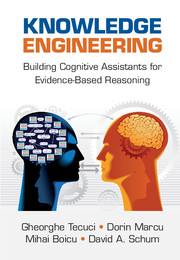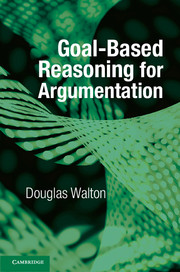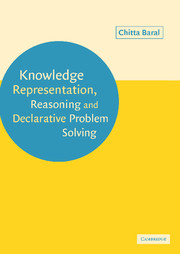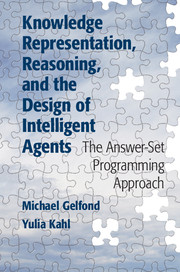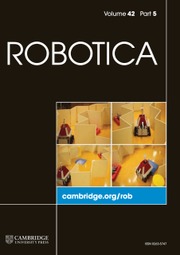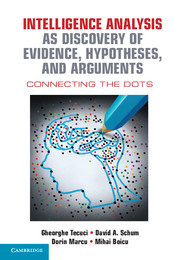Knowledge Engineering
This book presents a significant advancement in the theory and practice of knowledge engineering, the discipline concerned with the development of intelligent agents that use knowledge and reasoning to perform problem solving and decision-making tasks. It covers the main stages in the development of a knowledge-based agent: understanding the application domain, modeling problem solving in that domain, developing the ontology, learning the reasoning rules, and testing the agent. The book focuses on a special class of agents: cognitive assistants for evidence-based reasoning that learn complex problem-solving expertise directly from human experts, support experts, and nonexperts in problem solving and decision making, and teach their problem-solving expertise to students. A powerful learning agent shell, Disciple-EBR, is included with the book, enabling students, practitioners, and researchers to develop cognitive assistants rapidly in a wide variety of domains that require evidence-based reasoning, including intelligence analysis, cybersecurity, law, forensics, medicine, and education.
- Presents a significant advancement in the theory and practice of knowledge engineering
- Follows a hands-on approach to learning knowledge engineering
- Disciple-EBR is provided as a tool to develop personal learning assistants
Reviews & endorsements
'At the pole opposite to statistical machine learning lies disciplined knowledge engineering. This book gives a new and comprehensive journey on the approach to AI as symbol manipulation, putting most of the relevant pieces of knowledge engineering together in a refreshingly interesting and novel way.' Edward Feigenbaum, Stanford University, California
'This well-written book is a much-needed update on the process of building expert systems. Gheorghe Tecuci and colleagues have developed the Disciple framework over many years and are using it here as a pedagogical tool for knowledge engineering. Hands-on exercises provide practical instruction to complement the explanations of principles, both of which make this a useful book for the classroom or self-study.' Bruce G. Buchanan, Emeritus Professor of Computer Science, University of Pittsburgh
Product details
November 2016Hardback
9781107122567
480 pages
262 × 183 × 25 mm
1.16kg
350 colour illus. 59 tables
Available
Table of Contents
- 1. Introduction
- 2. Evidence-based reasoning: connecting the dots
- 3. Methodologies and tools for agent design and development
- 4. Modeling the problem-solving process
- 5. Ontologies
- 6. Ontology design and development
- 7. Reasoning with ontologies and rules
- 8. Learning for knowledge-based agents
- 9. Rule learning
- 10. Rule refinement
- 11. Abstraction of reasoning
- 12. Disciple agents
- 13. Design principles for cognitive assistants.

